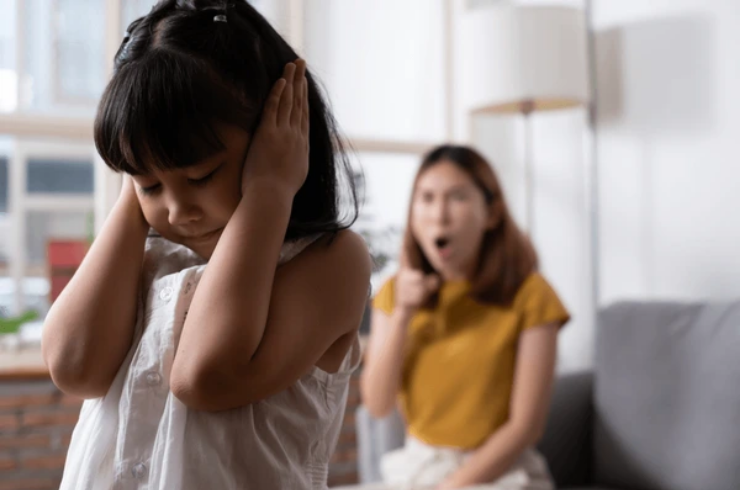Introduction
Behavior and thought problems can significantly impact an individual’s quality of life, affecting their personal, social, and professional spheres. At Ahmedabad Psychiatry Clinic, located in Ahmedabad, India, we specialize in diagnosing and treating a wide range of behavior and thought disorders. This article provides an in-depth look at these issues, their symptoms, causes, and the effective treatments available at our clinic.
What Are Behavior & Thought Problems?
Behavior and thought problems encompass a variety of psychological and psychiatric conditions that influence how individuals think, feel, and act. These disorders can manifest in numerous ways, including erratic behavior, irrational thoughts, mood swings, and difficulties in social interactions. Common examples include anxiety disorders, depression, obsessive-compulsive disorder (OCD), schizophrenia, and bipolar disorder.
Symptoms of Behavior & Thought Problems
Common Symptoms
- Mood Swings: Rapid and extreme changes in mood.
- Anxiety: Excessive worry or fear about everyday situations.
- Depression: Persistent feelings of sadness or hopelessness.
- Obsessive Thoughts: Recurrent, unwanted thoughts.
- Delusions: Strong beliefs in something despite evidence to the contrary.
- Hallucinations: Seeing or hearing things that are not present.
- Aggressive Behavior: Unprovoked outbursts of anger or violence.
- Social Withdrawal: Avoidance of social interactions and activities.
Recognizing the Signs
Identifying the symptoms early can lead to more effective treatment. If you or someone you know exhibits these signs, it is crucial to seek professional help. At Ahmedabad Psychiatry Clinic, our team of experts in Ahmedabad, India, is equipped to diagnose and treat these conditions with precision and care.
Causes of Behavior & Thought Problems Biological Factors
- Genetics: Family history of mental health issues can increase the risk.
- Brain Chemistry: Imbalances in neurotransmitters can affect mood and behavior.
- Hormonal Changes: Fluctuations in hormones can trigger mental health problems.
Environmental Factors
- Stressful Life Events: Trauma, loss of a loved one, or chronic stress.
- Substance Abuse: Drugs and alcohol can exacerbate or trigger mental health issues.
- Poor Nutrition: Deficiencies in essential nutrients can impact mental health.
Psychological Factors
- Cognitive Distortions: Irrational and negative thinking patterns.
- Personality Traits: Certain traits, like perfectionism or low self-esteem, can contribute.
Diagnosing Behavior & Thought Problems Comprehensive Evaluation
At Ahmedabad Psychiatry Clinic, we conduct a thorough evaluation to diagnose behavior and thought problems accurately. This includes:
- Medical History: Understanding the patient’s medical background.
- Psychological Assessment: Detailed interviews and questionnaires.
- Laboratory Tests: Ruling out physical conditions that might mimic psychiatric symptoms.
- Imaging Studies: MRI or CT scans to examine brain structure and function.
Personalized Diagnosis
Each patient’s condition is unique. Our specialists in Ahmedabad, India, tailor the diagnostic process to ensure an accurate diagnosis, considering all biological, psychological, and environmental factors.
Treatment Options for Behavior & Thought Problems Medication
- Antidepressants: Used for depression and anxiety.
- Antipsychotics: Effective in treating schizophrenia and bipolar disorder.
- Mood Stabilizers: Help manage mood swings in bipolar disorder.
- Anti-Anxiety Medications: Alleviate severe anxiety symptoms.
Psychotherapy
- Cognitive Behavioral Therapy (CBT): Helps in changing negative thought patterns.
- Dialectical Behavior Therapy (DBT): Effective for borderline personality disorder.
- Psychodynamic Therapy: Explores unconscious thoughts and past experiences.
- Group Therapy: Provides support and shared experiences from peers.
Lifestyle Modifications
- Healthy Diet: Balanced nutrition to support brain health.
- Regular Exercise: Physical activity to improve mood and reduce anxiety.
- Mindfulness and Meditation: Techniques to manage stress and enhance mental well-being.
Integrative Approaches
Combining medication, psychotherapy, and lifestyle changes often yields the best results. At Ahmedabad Psychiatry Clinic, our multidisciplinary team in Ahmedabad, India, collaborates to create a personalized treatment plan for each patient.
Coping Strategies for Patients and Families For Patients
- Education: Understanding the condition and its treatment.
- Support Networks: Building a network of friends, family, and support groups.
- Routine: Establishing a daily routine to provide structure.
- Self-Care: Prioritizing sleep, nutrition, and leisure activities.
For Families
- Awareness: Learning about the disorder to provide better support.
- Communication: Maintaining open and non-judgmental communication.
- Encouragement: Supporting the patient’s treatment plan and progress.
- Professional Support: Seeking family therapy or counseling if needed.
Prevention and Early Intervention Recognizing Early Signs
Early intervention can prevent the progression of behavior and thought problems. Recognizing early signs such as changes in behavior, mood swings, or withdrawal from social activities is crucial.
Seeking Help Early
Promptly seeking professional help can make a significant difference. At Ahmedabad Psychiatry Clinic, located in Ahmedabad, India, we emphasize the importance of early diagnosis and treatment to improve outcomes.
Lifestyle and Prevention
- Stress Management: Techniques such as yoga, meditation, and relaxation exercises.
- Healthy Relationships: Building and maintaining supportive and positive relationships.
- Regular Check-ups: Routine mental health check-ups to monitor and address issues early.


